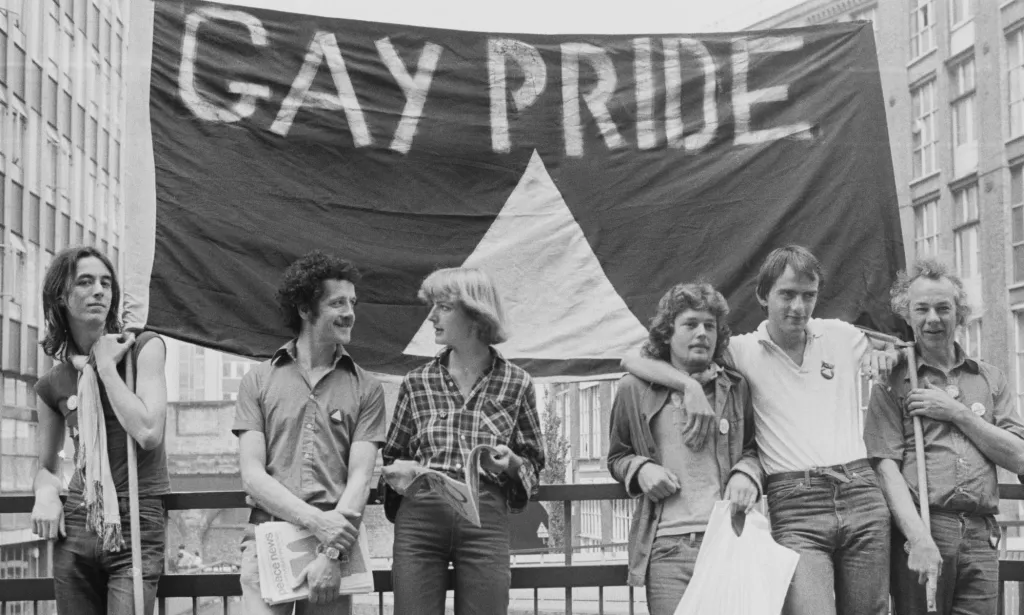Fascinating 1970s Pride footage shows queer activism half a century ago
This year’s Pride month is well underway and with it have come protests, marches and events honouring and promoting the rights of the LGBTQ+ community.
But things have changed considerably over the past few decades.
Pride in the 1970s was an incredibly different landscape – with the wounds of the Stonewall Riots in New York, which gave way to Pride, still fresh in people’s mind, the decade was a significant turning point.
Footage from events across London, Los Angeles, Sydney, and many more places show that, while Pride still had its positive and vibrant energy, it was much more focused on the rising injustices against LGBTQ+ people across the globe.
Pride protestors in London can be seen driving cars covered in pro-LGBTQ+ signs and rainbow balloons, while activists in luxurious costumes, simple face paint, or even just their Sunday-best clothes joined together to condemn bigotry in all its forms.

Meanwhile, in Los Angeles, the intense summer heat wasn’t enough to stop protestors holding signs saying “lesbians fight for freedom” or “gay and proud” in what was the city’s first LGBTQ+ Pride parade.
The Seventies became integral as a historical point for LGBTQ+ rights. In 1970, to mark the first anniversary of the Stonewall uprising, people marched through the streets of New York in what was then called the Christopher Street Liberation Day. Many now consider it to be the country’s first gay Pride parade.
In 1973, the American Psychiatric Association declassified homosexuality as a mental illness. Four years later, political activist Harvey Milk became the first out gay elected official in California. In 1977, New York’s supreme court ruled that transgender woman Renée Richards could play at the United States Open tennis tournament as a woman.
In ways though, the increased visibility was its own worst enemy, with vitriol towards LGBTQ+ people remaining high, while anti-LGBTQ+ groups continued to spread hateful rhetoric.
Milk was assassinated alongside mayor George Moscone in 1978 after receiving numerous death threats. He left a recording to be played after his death, in which he said: “If a bullet should enter my brain, let that bullet destroy every closet door in the country.”
Anti-LGBTQ+ activists such as Anita Bryant were increasingly active, too. Her “Save Our Children” children campaign helped repeal a gay-rights regulation in Florida that had prohibited discrimination on the basis of sexual orientation.
How did this story make you feel?

